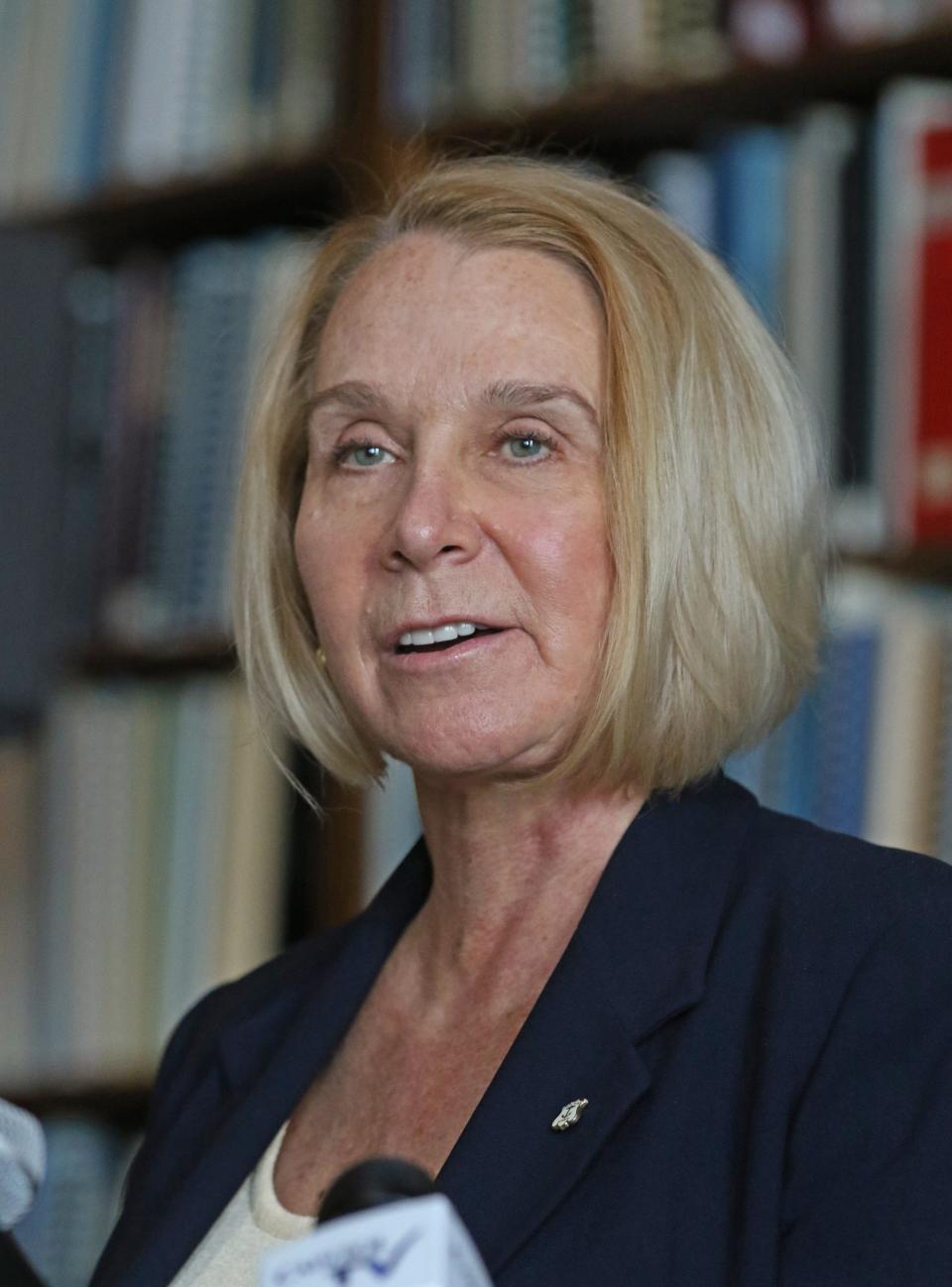Child care bills would pay for universal pre-k and support childcare workers
PROVIDENCE — Senators on Tuesday unveiled a sweeping package of legislation that would offer pre-kindergarten to every 3- and 4-year-old in Rhode Island, make child care more affordable and pay child care workers more to stay in the system.
$119M spending plan: Lawmakers unveil new plan with childcare-worker bonuses
Opinion/Steinberg: An investment plan for Rhode Island’s future
Universal Pre-K
The largest initiative, submitted by Sen. Hanna Gallo, D-Cranston, aims to enroll all 3-and 4-year-olds in pre-k by 2028, with no fewer than 4,000 seats by fiscal 2024. The state currently enrolls 2,364 children in pre-k.
Another Gallo bill would create a new agency, the Office of Early Childhood Development and Learning, to oversee child care and pre-k programs in Rhode Island. Those programs have been run by the state Department of Education and the Department of Human Services.

Asked why the state needed to create a new agency, Gallo said RIDE and DHS have more than they can handle, adding that Rhode Island needs one agency that can be held accountable for early education, including child care.
Gallo estimated it would cost $120 million to offer universal pre-k, with the hope that some of the funding can come from the Biden administration’s Build Back Better program, whose future remains uncertain.
“Access to high-quality pre-k should never depend on where a child lives,” Gallo said at Tuesday’s news conference at the State House.
Senate President Dominick J. Ruggerio said the five bills, submitted to the Senate Tuesday, provide a path to universal pre-k, strengthens the child care worker pipeline and represents an investment in the state’s future.
Child care assistance
This legislation expands income eligibility for the Childcare Assistance Program so that a family of three earning $61,260 is eligible.
It also ensures that families will not lose their child care if they work more hours or earn slightly more, and increases child care reimbursement rates that will meet or exceed national benchmarks. Sponsored by Sen. Sandra Cano, D-Pawtucket, it would take effect July1.
Cano called the legislation “a lifeline for working families, especially for those in communities who have been left behind.”
New state agency and council
Besides the new Office of Early Childhood Development and Learning, to oversee child care and pre-k programs in Rhode Island, the plan would also creates a 13-person organization, the Early Childhood Development and Learning Council, to set statewide policy, and conduct strategic planning.
Early educator investment
This legislation, sponsored by Cano, asks the Children’s Cabinet to develop a plan to increase wages for early childhood educators. It also creates a registry for these workers and sets aside $5 million to offer them better wages.
Early learning hubs
Sponsored by Sen. Alana DiMario, D-Narragansett, this bill establishes centers around the state to offer training and technical assistance to day care providers and pre-k programs.
“A solid foundation of high-quality early care and education is critical to healthy child development and school readiness,” said Elizabeth Burke Bryant, executive director of Rhode Island KIDS COUNT, a child advocacy organization. “We know that child care, starting with infant/toddler care, is essential for children to learn and for parents to be able to go to work confident that their children are thriving.”
Mary Varr, executive director of Woonsocket Head Start Child Development Association, said child care is in “a crisis mode.”
“Our workforce deserves to be financially recognized,” she said.
There isn’t a fiscal note on the total cost of the legislation.
Linda Borg covers education for The Journal.
This article originally appeared on The Providence Journal: Package of child care bills heads to RI Senate

